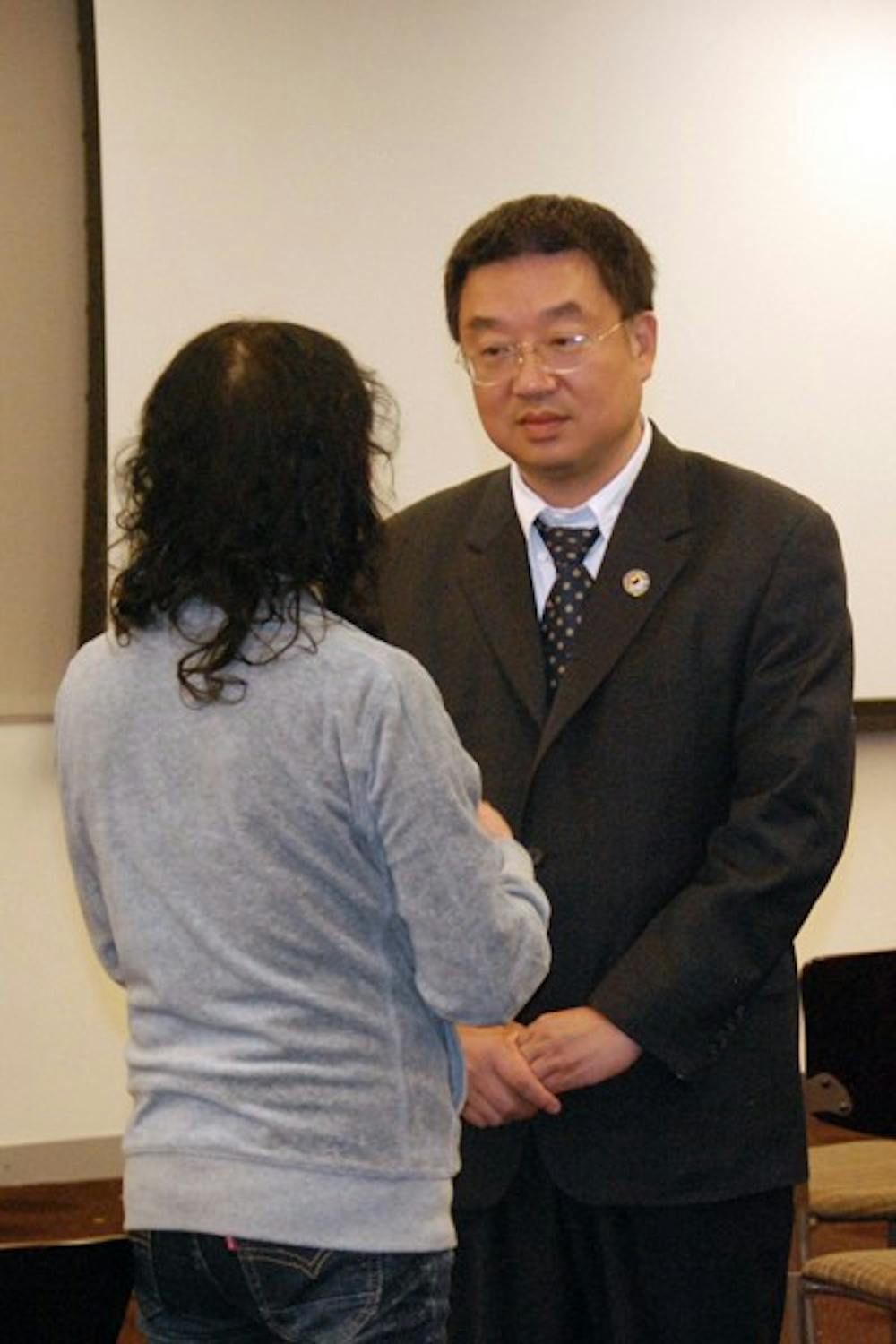It’s been called a spiritual cult, communism’s nemesis or simply an immoral lifestyle. Yet for almost two decades, one thing remains the same: The followers of Falun Gong, a spiritual practice, continue to be a heavily persecuted group in China.
Growing violence against the Falun Gong has inspired human rights advocates such as Shinzhong Chen, Ph.D., to speak out against its oppression.
“It’s a mass persecution,” Chen said. “Yet the world has been missing it.”
The Falun Dafa Club of ASU invited Chen Monday to provide insight on the country’s human rights dilemma.
Thousands of deaths of Falun Gong supporters have resulted from imprisonment by the Chinese government, Chen said.
The Chinese government denies any violence against the group, and calls the organization a cult that distorts religious teachings and goes against the ethics of a humane society, according to the U.S. Embassy in China’s website.
Chen estimates there are currently 100 million Falun Gong followers in China who continue to face extreme opposition from the communist government. The total number of reported deaths amounts close to 3,400 people — yet the number may be much higher, Chen said.
In several photos shown by Chen, a family of six sits close together — smiling brightly at the camera. As practicing Falun Gong members, the only one to remain alive is one woman, who continues to be jailed for unknown reasons.
Chen said the systematic documentation of thousands of cases have helped awaken the Chinese society to the fallen Falun Gong members. Since co-founding the Falun Gong Human Rights Working Group in 2001, Chen and his team have collected and translated over 100,000 cases of reported humanitarian abuses in China to the U.N.
The U.N. doesn’t have the capacity to process every case, Chen said — and only 10 percent of them are heard every year.
“Their actions will be known to the world,” Chen said. “They will be held accountable.”
The Chinese government originally supported Falun Gong, also known as Falun Dafa, but relations grew sour after the group quickly gained a popular following.
In 1999, the administration pronounced the movement too provocative after 10,000 practitioners staged a silent protest against state-run media in which security forces had no prior knowledge of the event.
The government launched a campaign to eradicate the group. One particular film, which has since been debunked as propaganda, shows Falun Gong members self-immolating themselves and exhibiting erratic behavior.
“That’s a setup,” Chen said. “That’s a fabrication, but it’s a very evil one.”
Chen said many people outside of China still don’t know of the intimidation and discrimination tactics the government uses to coerce practitioners out of the group’s beliefs. Many of the Chinese documents remain sealed and the international media turns a blind eye to human rights issues in exchange to report on China itself, Chen said.
Anand Sudhan, president of the Falun Dafa Club, said he initially didn’t know of the human rights violations that existed, and many Chinese members who shunned the name surprised him. As an international graduate student from India, Sudhan said he first joined the practice to help with his health, not because of its religious background — if any.
“I got so much out of it,” Sudhan said. “But the irony is the Chinese people hate it — especially Chinese people in my generation. They don’t know Falun Dafa at all.”
Treasurer of Falun Dafa Club Sahar Valencia echoes the sentiment that Falun Gong is not so much a religious group, but rather a physical and mental exercise to reduce stress. She said the only thing that distinguishes it from yoga is the commercialization of the practice.
“It’s a very beneficial meditational way for my mind and my body,” Valencia said. “It was really helpful for me.”
Reach the reporter at uvitkovs@asu.edu
Click here to subscribe to the daily State Press newsletter.





